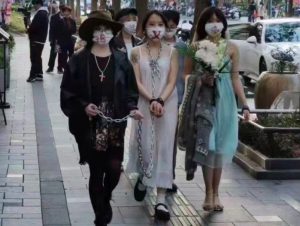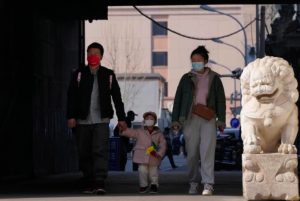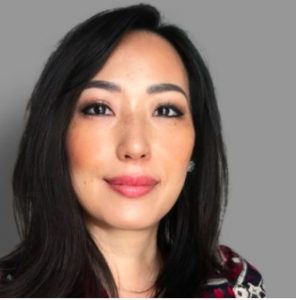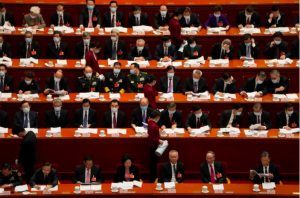Mary was so scared to watch the TikTok video her friends were talking about that she muted the sound.
It was a 2-minute clip that showed a pale, gaunt, middle-aged woman in a thin, pink sweater chained to the wall by her neck, rambling to the man who was filming the video.
“I was heartbroken, shocked and scared,” said Mary, a Chinese citizen living in Melbourne who asked to remain anonymous due to safety concerns.
She had read on Chinese social media that the woman in the video was a mother of eight living in a rural town in Jiangsu province, south-east China.
Like many others, Mary assumed the chained woman was a victim of human trafficking.
She had been told many stories about women and girls in China being sold to rural villages for forced marriage and childbirth.
According to a United Nations report, China recorded 208 human trafficking victims in 2017, six times more than in Australia. About 70 percent of victims were identified as women.
Yet many human trafficking advocates believe the actual case number could be much higher.
A Chinese government-affiliated social institute released a white paper on China’s missing population in 2020 which stated that the number was closer to 1 million.
“To be frank, human trafficking has a long history in China, so at first when many of us knew about the video, our reaction was, ‘Oh, it’s just another case’,” Mary said.
But it was more than that. As the “chained mother” video went viral, it sparked an online movement demanding government intervention, and a much broader discussion about China’s murky history of human trafficking.
‘This is totally nonsense’

The local county government released its first statement on January 30, claiming the woman, who was called Xiaohuamei, had been adopted by her husband’s father while she was begging on the street.
That statement also claimed that Xiaohuamei’s marriage to her husband was legal, and that she had been chained up because she suffered from mental illness and might “attack people”.
Mary was infuriated by the statement.
“This is totally nonsense. How come this is not involved with human trafficking?” she said.
The local village government and its city government later released another three statements, all denying Xiaohuamei was a victim of human trafficking.
They revealed more details, including that she had been taken to Jiangsu from Yunnan in south-west China by a woman surnamed Sang, upon the request of her own mother, for “mental health treatment” and “a good marriage”.
But many social media users were not convinced by the statements.
“Taking Xiaohuamei to Jiangsu for treatment and a good marriage? This sounds exactly like human trafficking,” one wrote on Weibo.
It did little to prevent the outcry from escalating. During the Winter Olympics in Beijing, the video reached more than 2 billion views, despite new censorship rules implemented by Chinese social media platforms during this time.
The video also inspired a rare wave of activism, with many women using Weibo to share their experiences of sexual harassment, while university students gave out flyers and used AirDrop to call for public attention on the case.

Chinese women living overseas also took action.
Emma, who lives in the United States, launched a petition on the Free Chinese Feminists Facebook page, calling for the Chinese government to undertake a thorough investigation.
She collected signatures from Chinese women in Australia, the US, Europe and Japan.
“We have seen many people in China taking action to call for more attention to the chained mother incident and, although we live overseas, we still want to do something,” Emma said.
“As women, we have seen how little efforts that governments and authorities have taken in countering sexual violence and human trafficking.
“We hope that the calls not only could rescue Xiaohuamei from the current situation, but also help women and children who are still suffering from human trafficking.”
Citizen Daily CN, an Instagram account which posts memes of Chinese current affairs, also organised a group of volunteers to translate information about Xiaohuamei from Chinese to English, in the hopes of capturing international attention.
“Chinese people also care about human rights and rule of law, but Chinese people don’t have room to speak out under the repression of an authoritarian government,” the group said in a statement.
On February 27, the fifth official statement was issued by Jiangsu municipal government, admitting that Xiaohuamei was indeed a victim of human trafficking.
It said her husband and the woman surnamed Sang, who had taken her to Jiangsu, were under investigation.
Chinese state media later reported a dozen local officials had been fired for failing in their responsibilities to investigate the case.
China’s shadowy human trafficking industry

Long-time human trafficking advocate Sylvia Yu Friedman said Xiaohuamei’s experience is “quite prevalent” in China.
The government’s latest statistics show there are 35 million more men than women in China, and the gender gap is much wider in rural villages.
According to Ms Yu Friedman, the long-term gender imbalance caused by China’s one-child policy created a market for bride trafficking, particularly in rural areas.

She added that the huge economic disparity between urban and rural China also contributed to the shadow industry.
“If you are in Beijing or Shanghai, it’s very different from being in a small rural town in China, where [people] may not be educated, they are very poor,” she said.
“They can make a lot of money by selling a woman. Each woman is worth about $35,000, and that’s a lot of money.”
Women in neighbouring countries are also at risk, according to Yaqiu Wang, senior China researcher at Human Rights Watch (HRW).
A 2019 report by HRW found that bride-trafficking businesses were bringing women in from northern Myanmar to sell to Chinese families for between $US3,000 and $US13,000 ($4,000 to $17,700).
Ms Wang said Chinese police tended not to investigate or punish human traffickers, especially when it came to international trafficking.
“[The police] actually treat the [trafficked] women as the law breakers who broke the immigration law to enter China illegally,” she said.
The 2021 United States Trafficking in Persons report identifies China as among 11 governments with a documented “policy or pattern” of human trafficking.
It noted the government’s continued mass detention and forced labour of 1 million Uyghurs, ethnic Kazakhs, ethnic Kyrgyz and other Muslims in the Xinjiang region as well as “coerced repatriation and internment” of other religious and ethnic minorities living overseas.
Professor Susan Tiefenbrun, a human trafficking researcher from Thomas Jefferson School of Law, said China did not have specific laws against human trafficking, which made it difficult for some women to seek help.
“America is not completely absent from this problem [of human trafficking],” she said.
“But here, and in European countries, it’s much easier to get help for these girls because there are laws, specific laws.”
The culture of not intervening in family affairs also means governments and authorities are reluctant to act on these crimes in rural China, according to international human trafficking expert Matthew Friedman.
He added that local governments may not even know how to act on human trafficking.
“If law enforcement hears that there’s a trafficking victim, they often need help to know what to do, because they don’t really have a solution,” he said.
Will China take more action on human trafficking?

Since the final official statement on Xiaohuamei from the Jiangsu government, China has started to silence online criticism.
Academics and journalists have been told not to speak out on the issue, while social media posts about her case have been deleted.
However, experts say much more discussion has been allowed to grow around this case than other controversial issues in China, such as tennis star Peng Shuai’s troubling relationship with a powerful official, Zhang Gaoli.
Kecheng Fang, assistant professor of media and communications at the Chinese University of Hong Kong, said this was because what happened to Xiaohuamei was more of a local scandal, with less connection to Beijing.
“It has nothing to do with the central government or high-ranking officials,” he said.
“So I can understand why there’s such a room of discussion allowed for discussion on this topic.”
However, he said, the ongoing online discussion about Xiaohuamei has caught Beijing’s attention.
“Because a lot of foreign media covered this, this has become an important issue,” he said.
On March 2, Beijing announced that it would launch a year-long campaign to tackle human trafficking of women and children — a move seen as Beijing’s response to the “chained mother” scandal.
Mr Friedman said the campaign could be helpful in tackling China’s widespread problem.
“When the Chinese government decides to take on an issue like this, they can be very effective at addressing the problem,” he said.
But Mary worries this will mean the end of the investigation into what happened to Xiaohuamei. Regardless, she plans to follow the case.
“I will never forget her and her experience, never,” she said.
